Personal Law Services
Probate Administration
Probate Administration
Our Distinguishing Factor –
Since we have an expert tax CPA, for probate estates we accept, our tax planning frequently saves heirs more than double the typical legal fees and costs paid in the ordinary course.
Common-sense tells us since probates are as much about taxes as is getting property to heirs, selecting an attorney who is also a CPA is a good idea. That way there is no loss in translation, and every tax dollar saved is a dollar heirs inherit. We also protect personal representatives from being personally responsible to pay taxes the deceased owes.
We understand after the loss of a loved one the confusion you likely have getting your head around the many conflicting aspects of a probate. We also know the frustration you likely are experiencing with what seems to be an overwhelming number of attorneys claiming they are “probate attorneys.” Like most people, probate is new and the emotion from the loss of a loved one makes finding a path forward frustrating and confusing to say the least. You may find thinking clearly or feeling the demands upon you are overwhelming. We simplify the process, clarify your path, and take the worry away because everything we do is designed to make this trying time easier for you. Let us carry the load so you do not have to worry.
Let’s get out of the way your likely biggest two concerns – can I trust Crest Key and what is the cost? While we can answer the first part of the question, you likely will not believe us, so here is a URL to 97 five-star reviews of people who are in your future writing about how they were treated, which reflects how you will be treated: Check out our latest reviews. Yes that is right, after reading as many of the 5-star reviews as you want about us, this link will allow you to research our competition. Do they have as may five-star reviews? We expect you will research our competition, and if you hire them, we understand and wish you well. In regards to costs, fees vary based upon the level of probate involved (See Qs 17, 19, and 20 below). What we can tell you now, our fees are FIXED for work in the ordinary course.
Contact Us Today
Ask a Us a Question or Contact Us Today.
After a death of a family member, we compassionately help survivors sort and prioritize the perceived and actual demands from creditors, the IRS, and family members. Our goal is to efficiently and expeditiously wind-down the personal affairs of your loved one. Our solutions are explained in plain English and include:
- managing family members’ expectations,
- negotiating with creditors and providing notices as required by law,
- gathering, valuing and inventorying property,
- managing various tax elections between the deceased’s last, income tax return and the tax return for the estate.
We handle the complexities of estate administration at all levels, so survivors can attend to important family matters and adjusting priorities.
Below is a road map of this resource page. It is organized for your ease of use:
- Our Draw Video shows how a properly planned probate works.
- 55 Frequently Asked Questions About Probate are below. If you really want to know, these are the nuts and bolts of probate for the lay person.
- Our book on Probate in Nevada is meant to answer many, if not most, of your initial questions about probate. It provides helpful information about non-apparent aspects of probate in Nevada (like how attorney fees are calculated) that many of our competition does not sufficiently address. but you will eventually face – some you would be surprised occur sooner than you might expect.
- If you are interested in meeting with us, see below on what to expect at our “Get-to-Know-You Meeting.”
- What to expect when we assist you in a probate in the Ordinary Course. Get a step-by-step outline of what happens in a typical probate when Crest Key helps.
Our Draw Video explains how a properly planned probate works.
Our book
“What Do I Do After My Loved One Dies”
Our book dispels probate myths and fills in the gaps other resources fail to discuss like how to handle family dynamics and how you unwittingly enrich attorney fees. It also provides helpful information about non-apparent aspects of probate you will eventually face – some, you would be surprised occur sooner than you may expect.

Your initial no fee meeting with Kirk D. Kaplan will last 30 minutes. He is a Tax Attorney and CPA with over 30 years of legal, accounting, and tax planning experience. Here is what to expect before and during the meeting:
1) Whether a probate is required. The property the deceased left, liabilities, existence of a Last Will and Testament, and family dynamics will be considered. We expect you will decide whether we will help you. At the same time Mr. Kaplan will decide if we will help you.
2) Before our meeting, we will send to you a probate questionnaire to be used during the meeting. We will assume you have reviewed the 55 Frequently Asked Questions About Probate on this page. The 10 minutes you spend reviewing the 55 questions will greatly help our meeting be productive.
3) The questionnaire asks basic information about:
a. You and your contact information,
b. The deceased (name, date of death, last will and testament, etc.),
c. Content of property and estimated values the deceased left behind. (See Q4),
d. Debts of deceased (credit cards, medical bills, etc), and
e. Who is related to the Deceased.
4) We do not ask for personal information such as Social Security numbers, etc. Your answers will give us an initial idea of how the estate may progress.
5) We will discuss our legal fees,and when they are to be paid.
Estimated values of Probate Property determines the level of probate required in Nevada. We WILL NOT use the estimated values to determine our fees based upon a percentage. For example, we understand estates worth $300,000 takes essentially the same amount of work as $1,200,000. If we quote our fees, it will be a flat fee for services in the Ordinary Course (See Q25). We have to have a good understanding of the structure of the estate and whether we want to help you. We will also discuss possible Extra-ordinary Services (See Q28). Our fees are paid from Probate Property and are due when a court orders (See Q27).
6) We will discuss our duties and responsibilities and your duties and responsibilities to the Estate.
Here is a step-by-step outline of what happens in a typical probate when we help.
We will:
- Create a map of how the estate will flow through the probate process, with a timeline and estimated closing date. This will include describing papers filed with the Probate Court.
- Help you organize what appears to be a disjunctive and infinite number of competing interests and demands.
- Plan actions toward reducing the time in the probate process and reducing your burden to answer to the court.
- Get the federal tax identification number for the estate.
- Counsel you on how to open an estate bank accounts, etc.
- Guide you on your duties and responsibilities in successfully and efficiently administering the estate. This will include giving you helpful responses to typical family member questions and/or demands.
- Properly noticing known and unknown creditors of the Estate; track creditor claims, and advise you on which claims to pay.
- Assist you in assembling and “Inventory” of Deceased’s property, or waivers thereof if applicable, and file them with the Court.
- Draft and file the closing petition. Voilà, the Probate is DONE!
Get Your
Consultation
We are legal, accounting, and business minds delivering exemplary service.



 Estate Planning
Estate Planning Healthcare Directives and Planning
Healthcare Directives and Planning Trust Administration
Trust Administration Prenuptial Agreements
Prenuptial Agreements